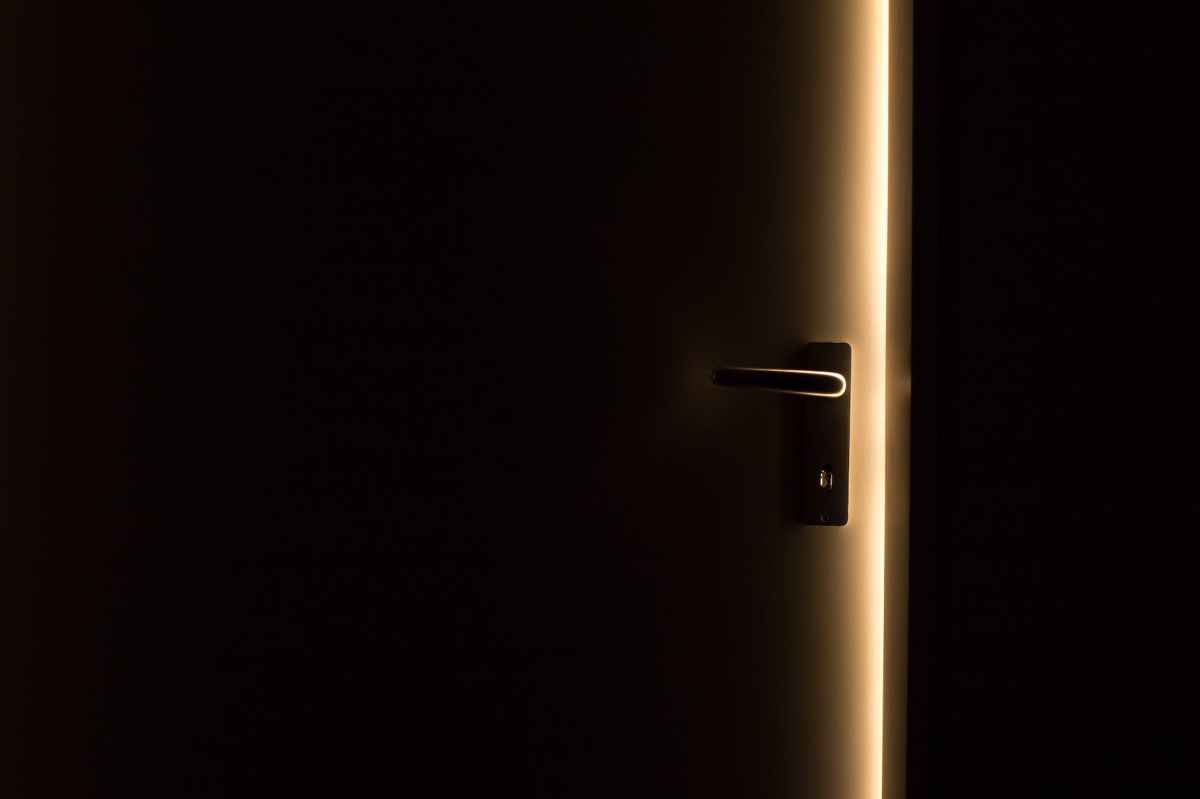I offered this sermon at the Diocese of Southern Ohio’s inaugural LGBTQ+ Ministry Summit on Saturday, March 29, 2025 at the Procter Camp & Conference Center . The text cited is John 4:5-26, Jesus’ encounter with the Samaritan woman at the well.
One of the indelible images of The Episcopal Church is that little sign posted here and there outside some of our church buildings: “The Episcopal Church welcomes you.” Maybe you’ve noticed them before. Maybe it even encouraged you to go inside an Episcopal Church. They are pleasant signs; I have no particular issue with them, other than that they are often so small that the welcome reads like a whisper. Pssst, yeah, you, come in here. Let’s all be quietly welcoming together. Very demure. Very mindful. We’ll be mindfully, quietly welcoming together.
I’m an introvert, so on some level, I can get into that. I love a sweet, reverent silence.
But then I look up and I look around at the world today…and I look back at the history of violence and rejection inflicted upon LGBTQ+ people, and upon so many other groups, all supposedly in the name of Christ. And I look at how cheap, how rescindable are some of the promises of equity and inclusion in political and corporate spaces, and I begin to wonder: maybe we as the Church need to make those signs a little bit bigger. Maybe we need to speak a little louder. A little prouder.
And maybe, too—and I realize I am going to verge on some Episcopal heresy here—maybe, after all this time, we also need to talk about something more than just welcome.
Because here’s the thing, Church. Here’s the thing many of us in this room already know: welcome is lovely, welcome is important, but welcome is only step one towards building up the kingdom of God in our midst. A community can graciously, warmly welcome all sorts of people. It can slide over and create some space for them in the pews and show them how the liturgy works, and that’s good.
But after a while, a person does not live on welcome alone. Eventually, we all want something more, something deeper than welcome—we want belonging. We want to feel like we belong among others, and that others want to belong with us. We want to feel that belonging in our bones. We want to know that all of us together belong to each other and to God.
The hunger for belonging is deeper than a greeting and a handshake at the door. It is the acknowledgement that you need me, you need my gifts and my story and my insights, just as much as I need yours. The acknowledgement that loving our neighbor as ourself means something other than casual friendliness—that it means the risk of vulnerability, the risk of permeability, the risk of being changed. That is what I am seeking when I walk into a church. And to the extent that any of us have been settling for less than that, or giving less than that, well—we still have work to do, with God’s help. We need a church that doesn’t simply welcome quietly, but actively, vibrantly, fearlessly creates communities of belonging.
The Samaritan woman in our Gospel passage experiences her own insight into welcome and belonging, too. This is a familiar scene for many of us, but let’s reimagine it together. This woman has come to draw water from the well in her own city. She is not the stranger here. Jesus is. And we can imagine that they are not necessarily hanging out the welcome sign for him and his followers. Despite their shared ancestry, the Samaritans and the Jews understand themselves as being at a religious and cultural impasse. Maybe they’ve used a few clobber passages against each other, who knows.
But nonetheless there is Jesus, sitting by himself at the well, asking for water. Asking this woman, in effect, am I welcome here? Will you welcome me? Will you give me something from the deep well?
And the woman is astounded by this. So astounded, you might notice, that we never hear whether she gives Jesus any actual water.
But what she does give him is something even better than welcome, something that is indeed from the deepest well of all—she gives him back her own deep thirst for connection and truth. Because she, too, knows what it is to feel like a stranger. To be labeled as an enemy, a villain, a lonely figure making her way through the world. And she, too, like Jesus, wants to know what that thing beyond mere welcome feels like, what belonging feels like. She, too, wants to be more than the labels applied to her, more than the constraints of her history and identity. And she senses, perhaps, that this man sitting with her understands this better than anyone.
Because God does. That’s the big reveal: that God, too, wants something more than just welcome and a little bit of space in our pews on Sunday morning. God wants to belong with us, God wants to belong within us, in the deepest well of our hearts. God wants to be the living water that is absorbed into our souls—not just a guest, but a part of the whole. That is why God came in the flesh, to satisfy the Divine thirst for communion with us.
And some of us here who, like the Samaritan woman, know something of feeling like a stranger, an enemy, a villain, or who have felt like a lonely figure making our way through the world—we who are queer, we who have thirsted and wept, well, we have something to teach the Church about the necessity of true communion.
Because we already know the insufficiency of a simple welcome when it doesn’t lead to something deeper. We know what it means to long for human kindness, and to risk our safety, even our lives, for the possibility of connection. And we have been drawing from the deep wells of inner knowing and vulnerability for our whole lives. To the extent that the rest of the church can see this and hear this and internalize this for itself, it will bless all of us together. Maybe it will help us all become something more than demurely welcoming. Maybe it will help us be brave. Brave for love’s sake. Brave in the way people can only be when they know they truly belong.
This is what it means to worship God in Spirit and in Truth—to experience an intimacy and a trust that cannot be taken away by anyone or anything. No law, no leader, no single passage of Scripture. And that deep connection to God and each other is (if we will embrace it) the unfolding mission that Christ offers to the church. The Episcopal Church, and the whole church. And it begins by getting to the other side of welcome and beginning the good, scary, holy work of actually belonging to each other.
That’s what we’ve been doing here this weekend. And that, I pray, is what all of us will bring back to our churches, and to our communities, and to the whole lonely, thirsty world. To unapologetically, joyfully, truthfully show them not just what it means to be LGBTQ+, but what it means to drink from the deep well of Spirit and Truth, where everyone—EVERYONE—Jew or Greek, enslaved or free, male or female or nonbinary, gay or straight or questioning, trans or Two-Spirit, of any color or heritage, of any orientation or ability, the one who knows God on the Mountain or in the city or only in the silence of their heart and the tears on their pillow—EVERYONE is part of the whole. For God says my house shall be called a house of prayer for ALL peoples. All peoples. All peoples who are are not just welcomed tentatively but BELONG in the household of the Living Word. It was already our home, because in God everyone is home. Thanks be to God, if we would only hear it and live it! Let’s hear it. And live it.
Ironically enough, outside my own current parish, I don’t think we ever actually had a sign that says, “The Episcopal Church welcomes you.” In our setting, nobody would have seen it driving by. But last year, instead, we put up a big banner by the side of the road. And it simply says, You Belong Here. I confess that I personally wanted to put it there because for so long in my past I needed that to be true. And so we pray–through the work of our hands and the openness of our hearts–that it may truly be so, for us and for all who come to the well seeking something deeper than mere welcome.
You are not just welcome here in the church, beloved, you belong here. You always did. And you always will. No matter who you are or who you are becoming. So drink deeply from the well of God’s love. It belongs to you. It belong to all of us.
And then let’s all of us show the world–not quietly–how beautiful belonging can be.




